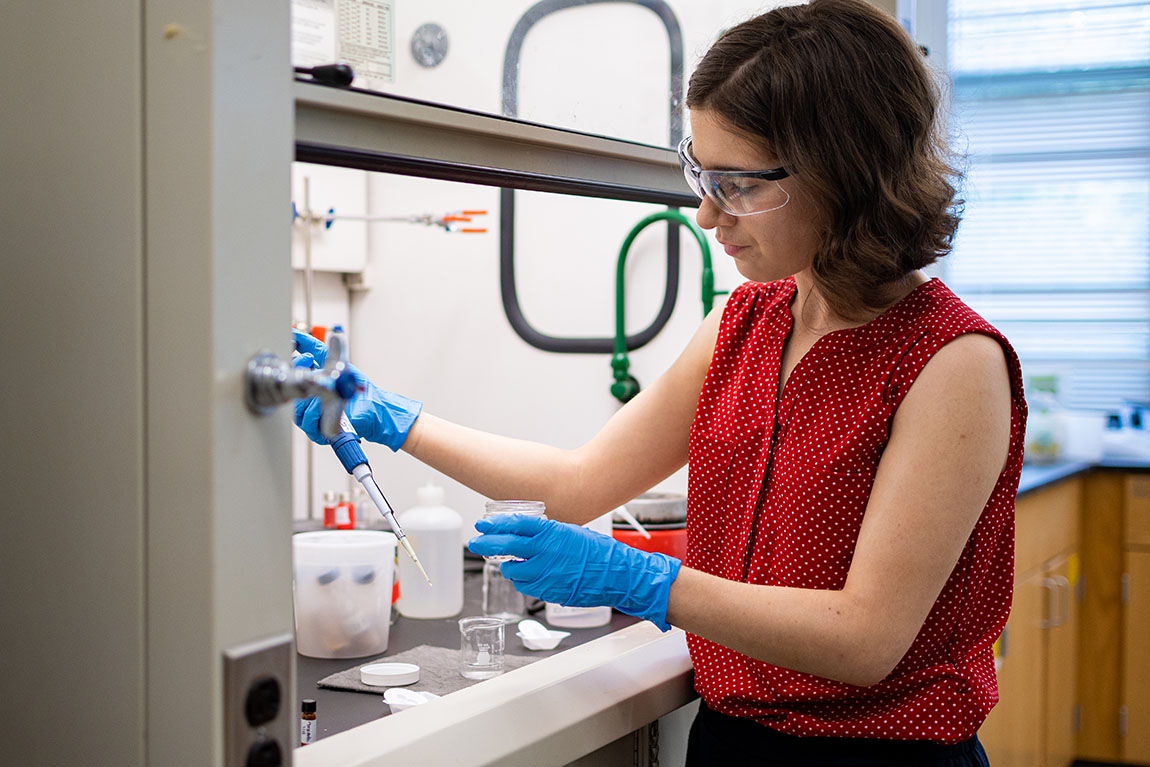Three Recent Biology Alumni Publish Papers on Bumblebee Research
The alumni — now in medical, dental and veterinary school — worked in the lab of Professor of Neuroscience and Biology and Chair of Neuroscience Jordanna Sprayberry during their time at Muhlenberg.By: Meghan Kita Friday, October 14, 2022 09:49 AM
 Natalie David ’22 conducting summer research in 2021. Photo by Joe Romano ’23
Natalie David ’22 conducting summer research in 2021. Photo by Joe Romano ’23This year, biology alumni Natalie David ’22, Jess Sommer ’21 and Vijay Rao ’22 all saw their undergraduate research published for the first time, in collaboration with Professor of Neuroscience and Biology and Chair of Neuroscience Jordanna Sprayberry.
David’s paper, “Odor pollution from fungicides disrupts learning and recognition of a common floral odor in Bumblebees (Bombus impatiens),” was published in Frontiers in Ecology and Evolution. Sommer and Rao’s paper, “Deconstructing and contextualizing foraging behavior in bumble bees and other central place foragers,” was published in Apidologie.
David’s research, which she began conducting as a first-year student, explored how fungicides affected bumblebees’ ability to recognize a familiar, floral scent. Pesticides have been studied much more extensively, she says, and she saw an opportunity to contribute to the scientific understanding of how agriculture affects pollinators.
Sommer and Rao’s publication was a review paper: They read hundreds of existing papers on bumblebee foraging, many of which used different terminology to mean the same things, and assembled the papers’ findings into one place with a clear, universal set of definitions.
Both Sommer, now a student at the University of Pennsylvania School of Veterinary Medicine, and Rao, now a student at the University of Pennsylvania School of Dental Medicine, had physically worked in Sprayberry’s lab before COVID. They began working on this review during the pandemic shutdown, as a project that could continue without in-person access to the lab.
The experience of reading and interpreting all those papers is helping Rao in dental school: “If you Google something we’re learning about, you’re not going to find the answer on the internet,” he says. “A lot of what we’re learning is related to research our professors are doing. Having that skill set of being able to interpret data is really important and saves a lot of time while studying.”
David, who is now attending the Emory University School of Medicine, says she developed a passion for research at Muhlenberg. She’s hoping to get involved with a neuroscience lab at Emory, ideally working on Parkinson’s research.
“Because of my time at Muhlenberg, I really think I have the tools to ask the right questions and use creative methods and work with others and collaborate and communicate to drive scientific progress,” she says.
